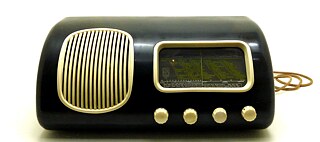Israel The radio’s always on

Oded from Israel has been listening to the radio since childhood, and he still does: in the car, at work and at home – where he even has a small collection of historical radios.
As soon as I enter a room, I turn the radio on. Whether I’m working at the Goethe-Institut or at home. In my little workshop, on the large rooftop terrace, or in the kitchen – where I live, in the city of Petach Tikwa near Tel Aviv, there are radios everywhere. A switch in our bathroom even has a double function: a single touch lights up the room and plays music.Not a day has passed without radio – and that was the case even when I was a child. When my mother was working in the kitchen she listened to the radio, mostly classical music, she was particularly fond of Johann Sebastian Bach. Today her old radio stands in my kitchen. My father on the other hand used to sit right next to our radio during the 1970s, especially on Shabbat, always at the same time and with paper and pen. The show שירים ושערים (“Shirim veshearim”, “Songs and Goals”) was a must. He would sit spellbound by the radio for three or four hours, following the live broadcast of football matches and painstakingly noting down the scores of every football club in Israel, while a random selection of Hebrew songs was played in between. Of course today that would be unthinkable, even listening to the radio together. For my grandchildren’s generation – between the ages of eleven and 22 – everyone is their own DJ, everyone has their own smartphone and EarPods.
Anyone who visits me at home might think they’re entering a small museum. I’m a collector. Be it coins, old typewriters, fans, projectors and of course old radios, ranging from the little hand-held transistor radio to a particularly beautiful set made by Grundig. It’s absolutely fascinating how the designs have changed over the years, and how timelessly beautiful some of the old radios still are, real classics.
When I listen to the radio my favourite station is 96.3 FM, because they play two-thirds Hebrew songs and one-third songs in other languages. This even makes the time I spend driving our Goethe bus for airport runs or on the way to set up new exhibitions bearable, because driving in Tel Aviv really isn’t very enjoyable at the moment – what with major roadworks around every corner throughout the city, as well as the narrow one-way streets. When I’m waiting at a red light I sometimes think: how I wish I could play some sort of instrument myself. I admire musicians, who draw you in and carry you along with their playing. They also very often encourage me and my wife onto the dance floor. That’s exactly why even now I still turn on the music as soon as I enter any room: without radio it feels to me as though the room’s dead.






